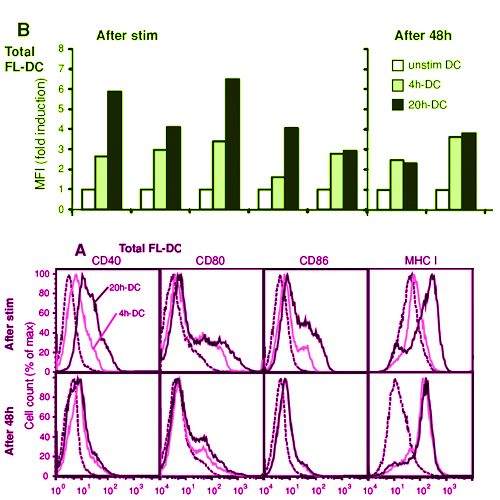Short-term activation induces multifunctional dendritic cells that generate potent antitumor T-cell responses in vivo
25-Oct-2008
Cancer Immunol Immunother, 2008, 10.1007/s00262-008-0606-2, published on 25.10.2008
Cancer Immunol Immunother, online article
Dendritic cell (DC) vaccines have emerged as a promising strategy to induce antitumoral cytotoxic T cells for the immunotherapy of cancer. The maturation state of DC is of critical importance for the success of vaccination, but the most effective mode of maturation is still a matter of debate. Whereas immature DC carry the risk of inducing tolerance, extensive stimulation of DC may lead to DC unresponsiveness and exhaustion. In this study, we investigated how short-term versus long-term DC activation with a Toll-like receptor 9 agonist influences DC phenotype and function. Murine DC were generated in the presence of the hematopoietic factor Flt3L (FL-DC) to obtain both myeloid and plasmacytoid DC subsets. Short activation of FL-DC for as little as 4 h induced fully functional DC that rapidly secreted IL-12p70 and IFN-alpha, expressed high levels of costimulatory and MHC molecules and efficiently presented antigen to CD4 and CD8 T cells. Furthermore, short-term activated FL-DC overcame immune suppression by regulatory T cells and acquired high migratory potential toward the chemokine CCL21 necessary for DC recruitment to lymph nodes. In addition, vaccination with short-term activated DC induced a strong cytotoxic T-cell response in vivo and led to the eradication of tumors. Thus, short-term activation of DC generates fully functional DC for tumor immunotherapy. These results may guide the design of new protocols for DC generation in order to develop more efficient DC-based tumor vaccines.











